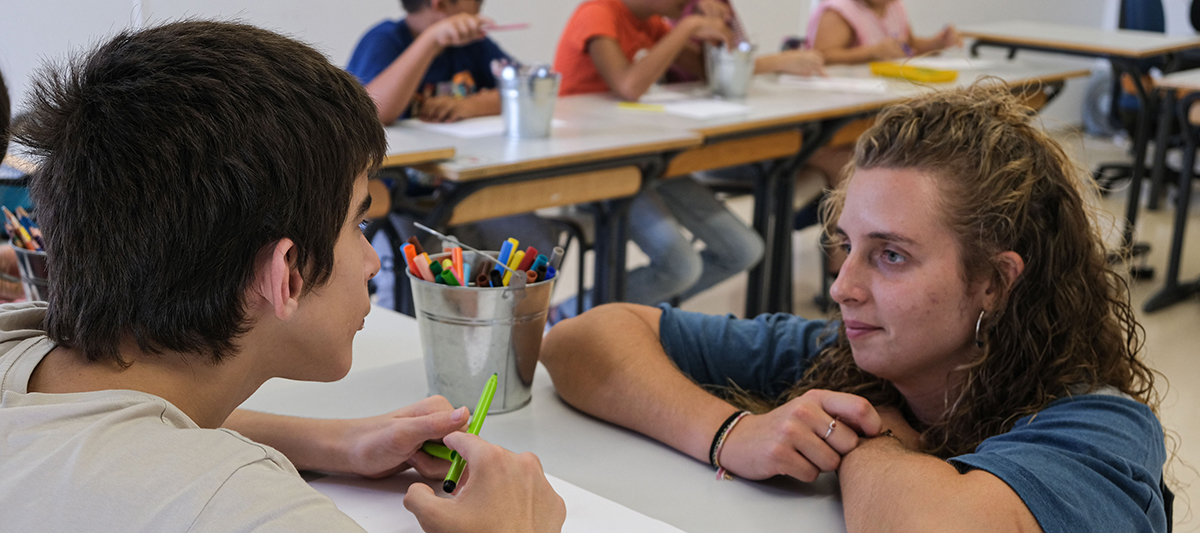Image of the Jeroni de Moragas School promoted by the AMPANS foundation.
Last year we attended 3.363 people with intellectual disabilities and at risk through the support network that we have deployed throughout the years and that goes from educational and training services, labour insertion, residential services and housing, day and occupational care and services to families.
Of the more than three thousand people assisted, 31% were in guidance, training and job placement services, and 24% were young people between 16 and 24 years of age who left school prematurely.
The Labour Insertion services surpassed the threshold of one thousand people assisted, 37% more than the previous year, and achieved 211 job placements in companies in the region and through the social economy projects it promotes. One of the projects that has grown the most is Industry Services, located in the Els Dolors industrial estate in Manresa, which works for various companies in the county in handling, assembly and product verification processes, among others.
More than 500 people received training through the training and employment guidance programmes, preparing them in personal and professional skills to access the world of work, with personalised itineraries that are adapted to the profile, interests and needs of each person. Among the achievements, the graduation of the first graduating class of Dual Training adapted to people with intellectual disabilities in Catalonia stands out, with one hundred percent employment incorporation.
Waiting lists of 200 people
In the socio-educational area, through the Jeroni de Moragas special education school, we accompanied 317 students, 83 of them in post-compulsory training adapted through training itineraries and programmes and accompanying adolescents on the road to adulthood.
In day and occupational care we attended to 457 people, while in housing and residential services we accompanied 346 people, and another 26 who live independently through the support programme for autonomy in the home.
As for the support to the families, we started a new service of home care with professionals of the entity with the aim of contributing to the rest and the quality of life of the families with people with intellectual disabilities in their charge. We did a total of 1.512 hours of services in the own home of the families, in a programme that we carried out with the support of Dincat.
Responding to a waiting list of more than 200 people for access to day and housing services, and the increasing complexity of different profiles and needs to which we must respond, are the main challenges we must face.



